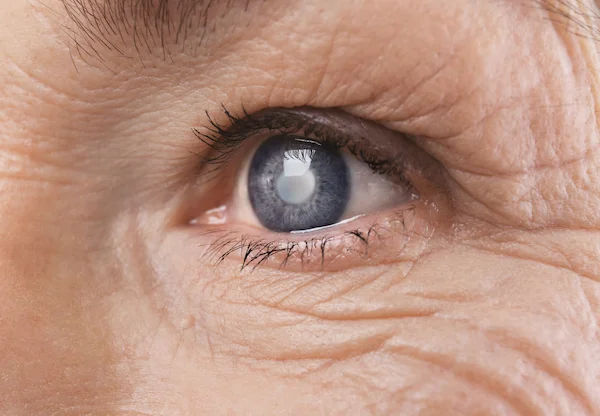Rheumatic Heart Disease Overview and Treatment
Learn about Rheumatic Heart Disease, its causes, symptoms, and available treatment options. Understand how early diagnosis and proper care can help manage this serious heart condition effectively.


Rheumatic heart disease (RHD) is a serious condition that affects the heart valves, often resulting from untreated or poorly managed rheumatic fever. While it can be a lifelong condition, early diagnosis and proper treatment can help manage symptoms and prevent complications.
This article will help you understand what RHD is, its causes, symptoms, and treatment options, along with simple lifestyle changes that can improve heart health.
What Is Rheumatic Heart Disease?
Rheumatic heart disease occurs when the heart valves are damaged due to rheumatic fever, an inflammatory disease caused by a bacterial infection (group A streptococcus, commonly known as strep throat). If strep throat is not treated properly with antibiotics, the immune system may mistakenly attack the heart valves, leading to scarring and impaired function.
Over time, damaged heart valves can cause:
Leaky valves (regurgitation) – Blood flows backward.
Stiff valves (stenosis) – Blood flow is restricted.
Heart failure – The heart struggles to pump blood effectively.
RHD is preventable if strep infections are treated early. However, in many cases, people may not realize they had rheumatic fever until heart damage appears later in life.
Consult a Top Cardiologist
Who Is at Risk?
Rheumatic heart disease is more common in:
Children and young adults (ages 5–15) who have had untreated strep throat.
People living in overcrowded or low-resource areas where access to healthcare is limited.
Individuals with a family history of rheumatic fever or RHD.
Those with repeated strep infections without proper antibiotic treatment.
Symptoms of Rheumatic Heart Disease
Symptoms may develop years after rheumatic fever. Common signs include:
Shortness of breath, especially during physical activity or while lying down.
Fatigue and weakness due to poor blood circulation.
Swollen ankles, feet, or abdomen (fluid buildup).
Chest pain or palpitations (irregular heartbeat).
Fainting or dizziness (due to reduced blood flow).
If you or a loved one experience these symptoms, consult a doctor immediately. Early detection can prevent further heart damage.
How Is RHD Diagnosed?
Doctors use several tests to diagnose RHD:
1. Physical Exam – Listening for heart murmurs (abnormal sounds).
2. Echocardiogram (Echo) – An ultrasound of the heart to check valve function.
3. Electrocardiogram (ECG/EKG) – Measures heart rhythm.
4. Chest X-ray – Checks heart size and lung congestion.
5. Blood Tests – Detects past strep infections or inflammation.
If you suspect RHD, you can book a consultation or diagnostic test through Apollo 24|7 for timely evaluation.
Treatment Options for Rheumatic Heart Disease
Treatment focuses on:
1. Managing Symptoms – Medications to reduce fluid buildup, control heart rate, and prevent blood clots.
2. Preventing Further Damage – Long-term antibiotics (like penicillin) to avoid recurrent strep infections.
3. Surgery (if needed) – Severe cases may require:
Valve repair – Fixing the damaged valve.
Valve replacement – Replacing with a mechanical or biological valve.
Regular follow-ups with a cardiologist are crucial to monitor heart health.
Lifestyle Changes to Support Heart Health
While medications and surgery are essential, lifestyle adjustments can significantly improve quality of life:
1. Eat a Heart-Healthy Diet
Reduce salt to prevent fluid retention.
Increase fruits, vegetables, and whole grains for better heart function.
Limit fatty and processed foods to maintain a healthy weight.
2. Stay Active (As Recommended by Your Doctor)
Gentle exercises like walking or yoga can improve circulation.
Avoid strenuous activities if advised by your doctor.
3. Take Medications as Prescribed
Never skip antibiotics or heart medications.
Keep up with follow-up appointments.
4. Prevent Infections
Practice good hygiene (handwashing, dental care).
Get vaccinated (flu and pneumonia shots).
5. Avoid Smoking and Alcohol
Both can worsen heart conditions.
Can Rheumatic Heart Disease Be Prevented?
Yes! The best way to prevent RHD is by:
Treating strep throat promptly with antibiotics.
Completing the full course of prescribed medicines to prevent recurrence.
Regular medical check-ups for early detection of heart issues.
If you or your child has frequent sore throats, consult a doctor to rule out strep infection.
When to See a Doctor?
Seek immediate medical help if you experience:
Severe shortness of breath.
Chest pain or fainting spells.
Rapid or irregular heartbeat.
If you suspect RHD or need a heart check-up, Apollo 24|7 offers expert consultations and diagnostic tests. Early intervention can save lives!
Conclusion
Rheumatic heart disease is a serious but manageable condition. With proper treatment, lifestyle changes, and regular medical care, people with RHD can lead active and fulfilling lives. If you have concerns about heart health, don’t wait to book an appointment today and take the first step toward better heart care.
Consult a Top Cardiologist
Consult a Top Cardiologist

Dr. Tripti Deb
Cardiologist
40 Years • MBBS, MD, DM, FACC, FESC
Hyderabad
Apollo Hospitals Jubilee Hills, Hyderabad

Dr. Sushith C
General Physician
2 Years • MBBS
Bengaluru
PRESTIGE SHANTHINIKETAN - SOCIETY CLINIC, Bengaluru

Dr. Bhethala Sharan Prakash
General Physician/ Internal Medicine Specialist
5 Years • MBBS MD
Bengaluru
PRESTIGE SHANTHINIKETAN - SOCIETY CLINIC, Bengaluru

Dr. Anand Ravi
General Physician
2 Years • MBBS
Bengaluru
PRESTIGE SHANTHINIKETAN - SOCIETY CLINIC, Bengaluru

Dr. Sumanjita Bora
Cardiologist
9 Years • MBBS, PGDCC
Bengaluru
Apollo Clinic, Sarjapur Road, Bengaluru




